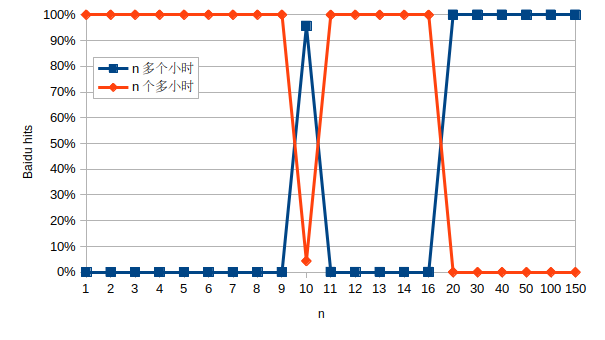I have a new teacher, and we've been communicating on WeChat. I wrote this:
我大部分时间在自学。目前我每一天花5个多小时在学习,包括周末(每个月150个多小时),不过……
She says that 每个月150个多小时 is incorrect and it should be 每个月150多个小时. Googling “100多个小时” (2+ million hits 101 hits) and “100个多小时” (16 hits) indicates this is indeed an error of some kind.
Question: Why is the 多 in 每个月150个多小时 misplaced?
I searched multiple questions on this topic: 1. Does 多 always come after the measure word? 2. How to correctly use "多" to say "more than"? 3. Can you still use "Number + MW + 多" when the Number can be more than one MW larger? I didn't find the answer, and sometimes putting the 多 after the measure word seems correct (e.g. 四块多美金 in this answer). I don't get it.
I made a plot using Baidu search hits (e.g. “150多个小时” and “150个多小时”) comparing n多个小时 vs. n个多小时 (note the non-linear x-axis):
This is perhaps why I'm so confused about this.
I'm starting to feel like the logic here is that 多 represents an unspecified least significant digit. So something like 三块五 becomes 三块多, whereas 三十五块 becomes 三十多块. I'm not sure if this is correct.
